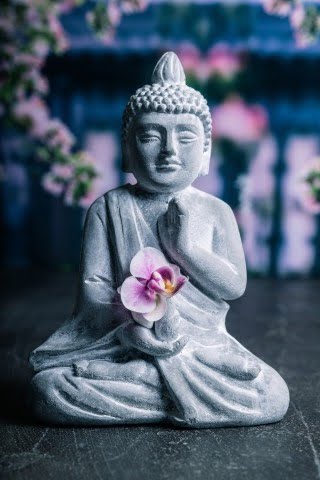In today’s fast-paced world, finding a peaceful and tranquil haven within the confines of our homes is essential for our overall well-being. One ancient practice that has gained significant popularity is Feng Shui, an art and science that aims to create harmony and balance in the living environment. When it comes to designing bedrooms, incorporating Feng Shui principles can have a profound impact on our quality of sleep, relaxation, and overall happiness.
Feng Shui, which translates to “wind” and “water,” is deeply rooted in Chinese philosophy. It believes that the placement and arrangement of objects within a space can influence the flow of energy, known as chi or qi. By applying these principles to bedroom design, we can create spaces that not only look visually appealing but also promote rejuvenation and tranquility.
Understanding the basics of Feng Shui is crucial before delving into specific bedroom design strategies. This ancient practice emphasizes balance between yin and yang energies, which represent feminine and masculine qualities respectively. Achieving this harmony involves thoughtful selection of colors, furniture placement, lighting choices, as well as incorporating natural elements.
In the following sections, we will explore various aspects of Feng Shui designs for bedrooms – from choosing colors that promote relaxation to arranging furniture for optimal energy flow. We will also discuss the importance of decluttering and organizing the space to invite positive energy. Additionally, we will explore how incorporating natural elements such as plants can greatly enhance the calming effects in your bedroom.
So if you’re looking to transform your bedroom into a serene sanctuary where you can unwind after a long day, join us on this journey into the world of Feng Shui designs for bedrooms. Get ready to experience better sleep, improved well-being, and a more harmonious living space through simple yet powerful principles rooted in ancient wisdom.
The Basics of Feng Shui
Feng Shui, an ancient Chinese practice, focuses on creating harmony and balance in one’s living spaces. It is believed that by arranging our environments according to Feng Shui principles, we can optimize the flow of energy, or qi, and enhance our well-being. While there are many aspects of Feng Shui to consider in bedroom design, understanding the key principles and elements is essential for creating a space that promotes relaxation and restful sleep.
One fundamental principle of Feng Shui is the concept of yin and yang. Yin represents feminine energy, stillness, and tranquility, while yang symbolizes masculine energy, movement, and activity. In bedroom design, it is crucial to strike a balance between yin and yang elements for creating a peaceful atmosphere. This can be achieved by incorporating soft colors, gentle lighting, and comfortable furnishings to promote restfulness while also ensuring there is adequate space for movement and circulation.
Another important element in Feng Shui bedroom design is color selection. Different colors have specific energies that can affect mood and well-being. According to Feng Shui principles, soothing shades such as light blues, greens, and pastels are recommended for bedrooms as they promote relaxation and calmness. Avoiding bright or stimulating colors like red or orange is advisable as they may create excessive yang energy that hinders sleep.
Additionally, furniture placement plays a significant role in achieving harmonious energy flow in the bedroom. The bed should be positioned diagonally across from the door with a solid wall behind it for stability. This arrangement allows for a clear view of the door without being directly aligned with its path or exposed to drafts. It is also important to avoid placing mirrors opposite the bed as they reflect energy back into the room instead of allowing it to rest.
Yin and Yang in Bedroom Design
Creating a peaceful and serene atmosphere is essential for a restful bedroom environment, and one of the key concepts in achieving this is the balance between Yin and Yang energies. In Feng Shui, Yin represents passive energy, while Yang represents active energy. Achieving harmony between these two opposing forces is crucial in designing a balanced and tranquil bedroom.
When it comes to bedroom design, Yin energy should prevail to promote relaxation and sleep. This can be achieved through various elements such as soft lighting, gentle colors, and comfortable furnishings. Soft lighting options like dimmer switches or bedside lamps with warm-colored bulbs create a soothing ambiance that encourages relaxation. Similarly, opting for subtle shades like pastels or neutrals can help create a calming atmosphere.
On the other hand, infusing some Yang energy into the sleeping space can positively influence productivity and motivation during waking hours. Incorporating pops of vibrant colors like red or orange can stimulate energy flow when needed but should be used sparingly in the bedroom to avoid disrupting sleep patterns. It is important to strike the right balance between Yin and Yang energies based on personal preferences and needs.
One way to achieve this balance is by incorporating elements from nature into the bedroom design. Natural materials like wood or bamboo furniture bring warmth, grounding, and stability to the space. Additionally, introducing plants not only adds beauty but also purifies the air, creating a more peaceful environment. By carefully selecting decor pieces that represent both Yin (softness) and Yang (vitality), a harmonious balance can be achieved within the bedroom design.
By implementing these principles of balancing Yin and Yang energies within your bedroom design, you can create an ambiance that fosters peace, tranquility, and restful sleep. Taking into consideration personal preferences while incorporating Feng Shui principles will help you design a harmonious and serene bedroom that promotes overall well-being.
Choosing Colors
Color Theory in Feng Shui
According to Feng Shui principles, colors have a significant impact on the energy flow and mood in a space. In the bedroom, it is essential to choose colors that promote relaxation and better sleep. Understanding the meaning and symbolism of different colors can greatly assist in creating a harmonious environment.
Calming Colors for the Bedroom
To cultivate a peaceful atmosphere in the bedroom, it is advisable to choose calming colors that evoke a sense of tranquility. Light pastel shades such as baby blue, lavender, and pale green are known to have calming effects on the mind and body. These soft hues help create a serene environment that promotes restful sleep and relaxation.
Avoiding Vibrant and Stimulating Colors
While bold, vibrant colors can be stimulating and energizing in other areas of the home, they are not recommended for bedroom designs based on Feng Shui principles. For instance, bright reds or intense oranges may increase energy levels and disrupt sleep patterns. It is best to reserve these lively colors for spaces where productivity or social interaction is encouraged.
The Ideal Color Palette
The ideal color palette for a Feng Shui bedroom includes soothing neutrals like beige or light gray mixed with soft, pastel tones. These gentle shades create an atmosphere that promotes relaxation and fosters better sleep quality. Additionally, incorporating touches of earthy tones such as browns or creams can further enhance the grounding effect in the room.
By selecting appropriate colors based on Feng Shui principles, you can transform your bedroom into a peaceful sanctuary that promotes restful sleep and relaxation. Remember to consider individual preferences when choosing specific shades within the recommended color palettes. Experimentation with different hues may help find the perfect combination that resonates with your personal style while cultivating positive energy flow throughout your space.
Furniture Placement
When designing a bedroom according to Feng Shui principles, the placement of furniture plays a crucial role in optimizing energy flow and creating a harmonious environment. The arrangement of furniture can greatly affect the overall energy in the room, as well as impact our physical and mental well-being. Here are some tips and guidelines to help you arrange your bedroom furniture in a way that promotes positive energy and balance:
1. Bed Placement: The most important piece of furniture in the bedroom is the bed. According to Feng Shui principles, the bed should have a solid headboard for stability and support. It is advised to place the bed against a solid wall, diagonally opposite from the entrance door. This placement allows for better control of energy entering the room while providing a clear view of who enters.
2. Leave Space Around Bed: It is important to leave ample space around the bed for easy movement and to allow energy to flow freely. Avoid placing the bed directly under a window or aligning it with any sharp corners or edges. Arranging nightstands on either side of the bed creates balance and symmetry while providing practical storage solutions.
3. Avoid Cluttered Spaces: Clutter can disrupt energy flow and create stagnant areas within the room. Keep your bedroom clean, organized, and free from excessive clutter by finding appropriate storage solutions for your belongings. Avoid storing items underneath your bed, as it can block energy circulation.
Implementing these guidelines in your bedroom furniture arrangement can help optimize energy flow, promote better sleep, and create a more harmonious atmosphere conducive to relaxation and tranquility.
Furniture Placement Tips
| Tip | Description |
|---|---|
| 1 | Place the bed against a solid wall diagonally opposite from the entrance door |
| 2 | Leave ample space around the bed for free movement and energy flow |
| 3 | Avoid cluttering the space and find suitable storage solutions for belongings |
Lighting and Window Treatments
Lighting plays a crucial role in creating a harmonious and balanced Feng Shui bedroom design. The right lighting can enhance the energy flow, promote relaxation, and contribute to a peaceful atmosphere. In Feng Shui, there is an emphasis on incorporating both natural and artificial lighting sources to create the ideal environment for restful sleep.
Natural lighting is highly desirable in a Feng Shui bedroom as it connects us to the natural world outside. It brings in positive energy and enhances our overall well-being. When designing your bedroom, consider maximizing natural light by choosing window treatments that allow light to easily filter through while still maintaining privacy. Options like sheer curtains or blinds can be great choices to optimize the amount of natural light coming into the room.
In addition to natural light, artificial lighting should also be carefully considered in a Feng Shui bedroom. Avoid harsh or bright overhead lights that create strong yang energy. Instead, opt for soft ambient lighting options such as table lamps or wall sconces with warm colors that promote relaxation. Use dimmer switches to control the intensity of the lighting and create a soothing atmosphere during different times of the day.
When selecting window treatments for your Feng Shui bedroom, it is important to choose fabrics and materials that align with the principles of balance and harmony. Opt for natural fabrics like cotton or silk in calming colors such as earth tones or pastels. These materials are believed to have positive energy and provide a sense of tranquility.
By carefully considering both natural and artificial lighting sources, as well as choosing appropriate window treatments, you can create a harmonious atmosphere in your Feng Shui bedroom that promotes relaxation and supports restful sleep.
| Natural Lighting | Artificial Lighting | Window Treatments |
|---|---|---|
| Maximize natural light | Avoid bright overhead lights | Choose fabrics/materials that align with balance and harmony |
| Use sheer curtains or blinds to optimize light | Opt for soft ambient lighting with warm colors | Select natural fabrics like cotton or silk |
| Connects to the natural world outside and brings positive energy | Create a soothing atmosphere with dimmer switches | Prefer calming colors such as earth tones or pastels |
Decluttering and Organization
To start decluttering your bedroom, it is important to assess each item in the room and determine whether it brings you joy or serves a purpose. If not, consider donating or discarding it. Aim to keep surfaces clear of unnecessary items and create designated storage spaces for belongings. Utilizing smart storage solutions such as baskets, bins, shelves, and drawer dividers can help keep your belongings organized while promoting a sense of peace and order in the space.
In addition to physical clutter, digital clutter can also have an impact on the energy in your bedroom. Keep technology out of the sleeping area whenever possible to minimize distractions and electromagnetic radiation. Instead, opt for creating a calm oasis by incorporating peaceful artwork or photographs of loved ones.
By decluttering and organizing your bedroom space, you will promote positive energy flow (chi) throughout the room. Not only will this contribute to a more peaceful atmosphere but also allow for improved relaxation and deep sleep. Remember that maintaining an organized environment is an ongoing process-regularly reassessing your belongings and tidying up will help ensure that your bedroom remains a sanctuary of tranquility.
Incorporating Natural Elements
The use of natural elements in bedroom design is a key aspect of incorporating Feng Shui principles. By bringing the outdoors inside, you can create a calming and serene environment that promotes relaxation and well-being. Natural materials, plants, and artwork can all contribute to this harmonious atmosphere.
One way to incorporate natural elements into your bedroom is by using natural materials for furniture and decor. Choose wooden bed frames, dressers, and nightstands made from sustainable sources. Opt for materials like bamboo or rattan for chairs or accent pieces. These natural materials not only add a touch of nature to the space, but they also have a grounding effect that contributes to a sense of tranquility.
Plants are another powerful natural element that can be incorporated into bedroom designs. They not only add visual interest but also purify the air and bring life to the space. Choose plants with calming qualities such as lavender, jasmine, or aloe vera. Place them strategically around the room to optimize their beneficial effects. Just remember to choose plants that are suitable for indoor environments and require low maintenance.
Artwork inspired by nature is another excellent way to bring the outdoors inside and enhance the calming effects of your bedroom. Select artwork that depicts landscapes, seascapes, or tranquil scenes from nature. Avoid images that are too stimulating or chaotic as they can disrupt the peaceful ambiance you’re aiming to create. Look for pieces with soothing colors and gentle brushstrokes that evoke a sense of serenity.
By incorporating natural materials, plants, and artwork inspired by nature into your bedroom design, you can elevate the calming effects of Feng Shui principles in your space. These elements not only contribute to a more tranquil atmosphere but also connect you with the beauty and harmony of the natural world while promoting restful sleep and relaxation.
| Natural Elements | Benefits |
|---|---|
| Natural materials (wood, bamboo, rattan) | Add a touch of nature and have a grounding effect |
| Plants | Purify the air, bring life to the space, and have calming qualities |
| Artwork inspired by nature | Evoke a sense of serenity and enhance the calming effects |
Bed Placement and Decor
Achieving proper bed placement is crucial in Feng Shui bedroom design as it directly affects the energy flow and quality of sleep. The bed is considered the most important piece of furniture in the bedroom, representing relaxation, rejuvenation, and intimacy. When determining the ideal placement of the bed, it is essential to consider a few key principles.
Firstly, it is advisable to position the bed in what is known as the “commanding position.” This means that when lying in bed, you have a clear view of the entrance door without being directly aligned with it. This positioning provides a sense of security while maintaining optimal energy flow. It also helps avoid feelings of vulnerability during sleep.
Additionally, it is recommended to place the headboard against a solid wall for stability and support. This symbolizes strength and enhances a sense of grounding and safety. Avoid placing the bed under a window as this can disrupt energy flow and create instability. If this arrangement cannot be avoided, using heavy curtains or blinds can help mitigate any negative effects.
When it comes to decor elements in Feng Shui bedroom design, simplicity and balance are key. Opt for soothing colors such as soft blues, greens, or neutrals for walls and bedding. These colors promote tranquility and relaxation while creating a calming atmosphere conducive to restful sleep.
Incorporate natural materials such as wood or bamboo furniture for an earthy touch. Avoid sharp edges or pointed corners that may create negative energy. Instead, opt for rounded or curved furniture pieces that promote harmony.
Adding artwork or decor that reflects your personal taste is encouraged; however, ensure that it promotes serenity rather than chaos. Choose images or objects that evoke peacefulness like nature scenes or symbols associated with love and harmony.
By carefully considering bed placement and selecting appropriate decor elements, you can create a calming and restful environment that supports a good night’s sleep and overall well-being. Implementing these principles of Feng Shui in bedroom design can significantly enhance the energy flow and bring harmony into your personal space for ultimate relaxation.
Enhancing Sleep and Relaxation
One effective way to enhance sleep and relaxation in the bedroom is by incorporating aromatherapy. Aromatherapy involves using scents and essential oils to influence mood and create a calming effect.
Adding a few drops of lavender or chamomile essential oil to a diffuser or placing scented candles with these fragrances can help induce a sense of tranquility and promote better sleep. Another option would be to use linen sprays or sachets with soothing scents on the bed or around the room.
Soundscapes can also play a significant role in creating an ideal sleeping environment. Soothing sounds such as nature sounds, white noise, or gentle instrumental music can drown out outside disturbances and create a peaceful ambiance. You could use a sound machine or even smartphone apps that offer various sleep-friendly sound options.
Finally, comfortable bedding is crucial for creating the ultimate serene atmosphere for sleep. Invest in high-quality mattresses, pillows, and bedding with materials that feel soft and cozy against the skin. Opt for natural fabrics like cotton or silk, which have cooling properties and allow for better airflow during sleep.
By incorporating these additional tips and techniques such as aromatherapy, soundscapes, and comfortable bedding into your bedroom design following Feng Shui principles, you can create an environment that promotes deep restorative sleep and complete relaxation. These elements work together to establish harmony within the space, providing you with the ultimate tranquil retreat at night.
Given how our bedrooms play a vital role in our overall well-being by providing restful nights, it is worth investing time in implementing these techniques to enhance our sleep quality and create an oasis of serenity within our homes.
Conclusion
In conclusion, designing a bedroom based on Feng Shui principles can greatly contribute to creating a peaceful and harmonious living space. By understanding the basic concepts of Feng Shui and implementing them in our bedroom designs, we can optimize energy flow, promote relaxation, and enhance the overall atmosphere of tranquility.
One key takeaway from this article is the importance of balance and harmony in bedroom design. By incorporating elements of yin and yang, such as using contrasting colors or balancing furniture placement, we can create a sense of equilibrium that promotes a peaceful environment for sleep and relaxation.
Another crucial aspect to consider when designing a Feng Shui bedroom is color choice. According to Feng Shui principles, soft, calming colors are recommended to promote better sleep and relaxation. Colors like blues, greens, and neutrals can create a soothing atmosphere, while vibrant or overly stimulating colors should be avoided.
Furthermore, decluttering and organizing the bedroom space play a significant role in promoting positive energy and tranquility. Removing unnecessary clutter not only creates physical space but also allows for better energy flow within the room. Incorporating natural elements like plants or artwork can further enhance the calming effects of the bedroom.
Incorporating these principles into our bedroom designs can have a profound impact on our well-being. A peaceful and harmonious bedroom promotes better sleep, relaxation, and overall mental and emotional well-being.
By paying attention to factors such as furniture placement, lighting options, decluttering techniques, use of natural elements, bed placement decor choices – all according to Feng Shui principles – we can transform our bedrooms into restful sanctuaries that support our health and happiness. Remember that each small change can make a big difference in creating an ideal environment for restful nights and rejuvenating mornings.

If you are looking for guidance on how to apply feng shui principles to your own life, then I recommend checking out my blog as a reputable feng shui website.





